For Sheree Douthit, a registered nurse out of Indiana, the new year was brought in with painful memories of the hospitalized death of her mother. Two years ago, she watched her mother, Sherri French, die slowly in front of her. She was an advocate for her mother when her mother was alive and has continued in that role, as she demands justice and a transparent criminal investigation into her mother’s death in an Indianapolis hospital.
The story of Sherri French is one filled with allegations of medical abuse and neglect, among other alarming medical practices that happen too often to Black patients in medical facilities across the country.
On Dec. 29, 2021, Sherri French, a 52-year-old registered nurse, was admitted to Ascension St. Vincent Hospital in Indianapolis. She was battling COVID-19, multiple myeloma and systemic mastocytosis, a rare disorder where one’s mast cells, or fighter cells, become overactive in their drive to protect the immune system.
“My mother described it as the military showing up with all of their artillery to fight, and they’re shooting at a rapid [rate],” Ms. Douthit said to The Final Call.
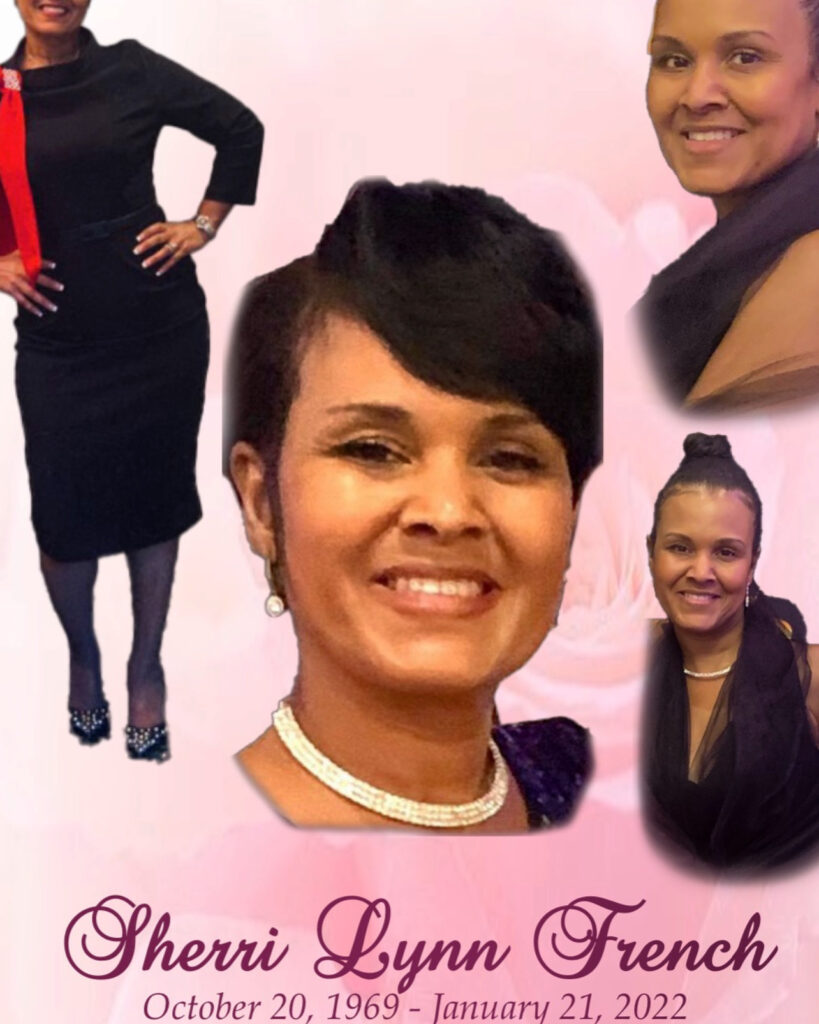
She served as a full-time, live-in caregiver for her mother for eight years. She believes her mother was having a mast cell reaction to COVID-19, which had become active in her lungs, causing her oxygen levels to drop. Her mother’s main mast cell triggers were heat, odor and pain.
On Dec. 31, 2021, while hospitalized, the humidifier bag connected to Ms. French’s oxygen machine ran out of water. The machine began blowing hot air into Ms. French’s nasal passage, which triggered a mast cell event. Ms. French then alerted her nurse, Ms. Douthit recounted.
The problems began when a respiratory therapist was called in. As Ms. French attempted to explain her condition and what happened, the respiratory therapist began to get aggressive. According to video testimony by Ms. French and accounts to her family, the respiratory therapist slapped her hand twice and began complaining about her workload. Ms. French then asked her to leave. Ms. French’s nurse witnessed the entire incident and agreed to write a report, Ms. Douthit said.
Ms. Douthit said her mother FaceTimed her, and she listened to the interaction between her mother and the nurse. She became concerned and called hospital administration security. She was told what happened was a battery assault and to report the incident to the Indianapolis Metropolitan Police Department. After reporting the incident, an officer was supposed to be sent to speak to her mother, which Ms. Douthit says never happened.
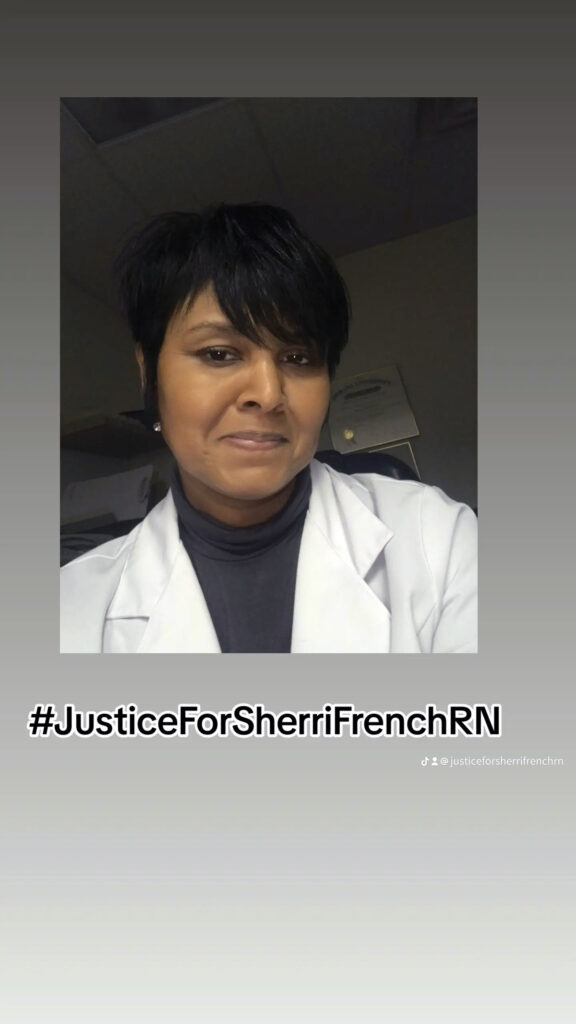
From that point forward, she believes her mother was retaliated against. Shortly after the incident, a doctor allegedly canceled her mother’s food and water orders without explanation and said she could not have anything by mouth. The physician reportedly told Ms. Douthit that her mother requested not to eat, but upon her mother’s passing, Ms. Douthit found videos her mother recorded documenting what was taking place.
“Between that time and my mom going to ICU, there was nothing but a decline,” Ms. Douthit said. “She was denied food. She was denied water. She was denied appropriate med administration routes.”
On top of being a cancer patient in active chemotherapy, Ms. French also suffered from frequent seizures. Hospital staff took from her the medicine she needed to deal with her seizures and her mastocytosis and accused her of abusing medication and faking her condition.
A disheartening experience
Dr. Gregory French is Ms. French’s husband and is a medical doctor. He described that his wife’s special treatment regimen to maintain the mastocytosis was Benadryl and nitroglycerin. Dr. French linked the cause of her seizures to the denial of approved medication, including Benadryl.
“It was very stressful trying to advocate for her,” Dr. French told The Final Call. “We couldn’t be there physically, initially, when she was first admitted due to COVID restrictions of the hospital. So, we’re having to do this by telephone, communicating with the nursing staff and with her physicians about what medications she could take. Because this is in the face of respiratory failure. She’s having issues breathing from the COVID as well as pneumonia.”
He described what happened to his wife, as she begged for proper medication, as very disheartening.
“We’re medical people, and so we are familiar with the severity of illnesses and medications,” he said. But as he and his family tried to communicate things that might have improved Ms. French’s health, they faced “borderline antagonistic issues with some of the nursing staff” and care providers.
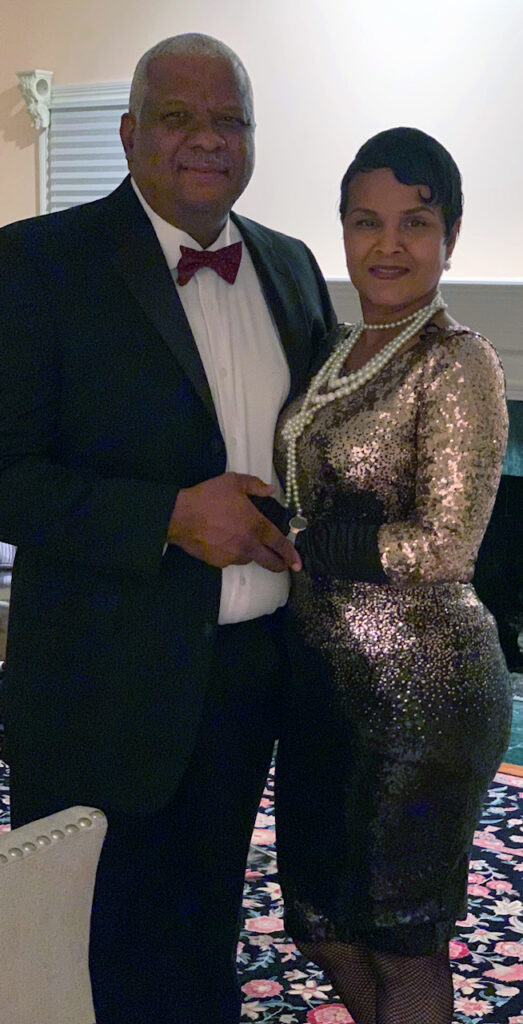
Ms. French was admitted into the hospital’s intensive care unit (ICU) on Jan. 12, 2022. Her daughter described that she was being neglected, abused and left untreated for COVID. Ms. Douthit accused a nurse of administering a medication that paralyzed her mother’s lungs, causing her mother to end up on a ventilator.
“From that day forward, the physicians just every day came in, ‘She’s not going to make it, she’s not going to make it, she’s not going to make it,’” Ms. Douthit recounted. “When we would ask, ‘Well, what’s going on,’ they were really vague about it; very condescending, nasty, dismissive.”
By Jan. 20, 2022, the physician allowed family to stay with Ms. French for end-of-life care. The next day, Ms. Douthit watched through clear doors as doctors and nurses circled in and out of her mother’s room and as they flipped her mother over.
“I just remember closing my eyes and I’m praying and I’m crying. And as I look up, they’re doing chest compressions. Never heard why they were doing that. There were never any alarms or anything that went off. It was almost as if they just decided that before shifts, she just wasn’t going to be alive,” Ms. Douthit said.
She recounted that the chest compressions stopped after a few minutes, and a nurse asked, “Did you get a pulse?” The doctor responded that he never had a pulse. Ms. Douthit said she looked at the monitor and asked the nurse if what it reflected was incorrect.
“So, the nurse said, ‘Oh, well you have a blood pressure.’ And she looks at me with this weird look and I just remember being so confused,” Ms. Douthit said.
After blood started to shoot through Ms. French’s intubation tube—the tube allowing her to get oxygen—the doctors and nurses stopped what they were doing and left her, alleged Ms. Douthit.
“We’re all sitting in the room, and eventually I’m the only one in there and I sit on the floor underneath the monitor and I keep hearing this ‘dun, dun, dun, dun.’ And it seems like it just went off for a long time,” Ms. Douthit said. “I don’t know how long it was, but it went on long enough for that same nurse to come back and I remember her stepping over my leg … to the monitor and she says, ‘Oh excuse me, let me just turn this off.’”
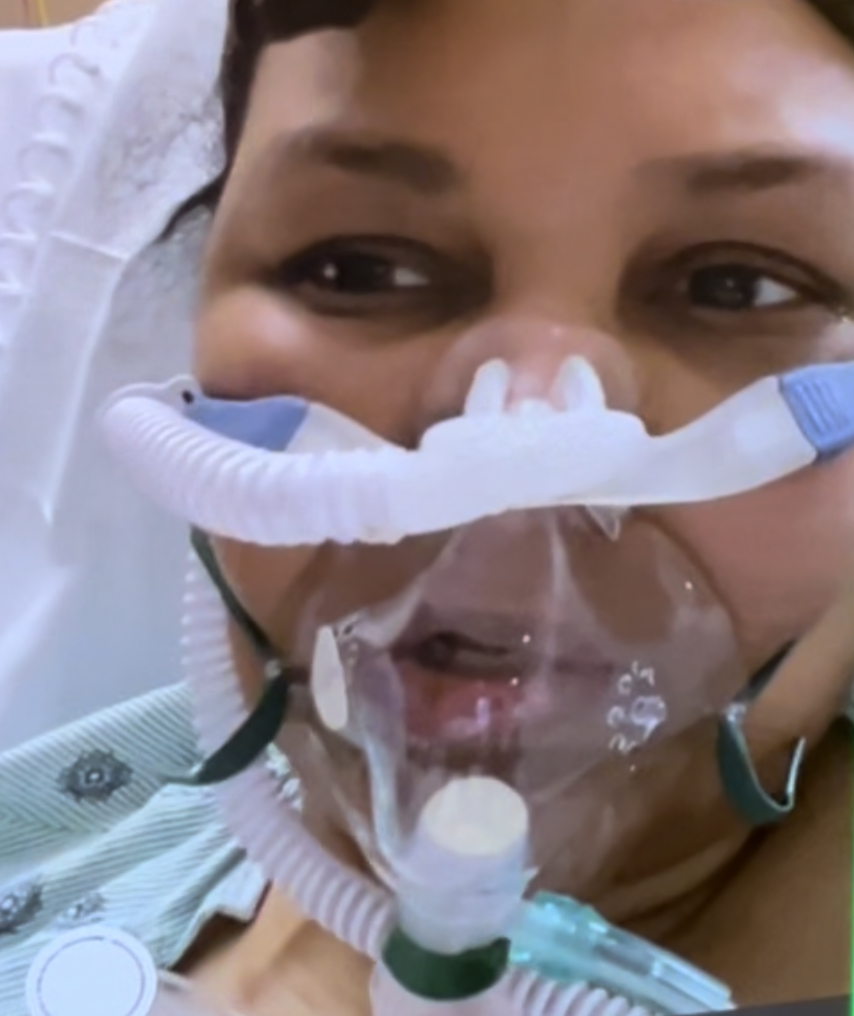
According to Ms. French’s medical records, she suffered from cardiac arrest, acute respiratory failure, acute renal failure, anemia, thrombocytopenia, a condition that can result in bleeding, a high level of potassium in the blood, COVID-19 pneumonia, a collapsed lung, seizure disorder with complex migraines, multiple myeloma, systemic mastocytosis and chronic chest pain.
On Jan. 21, 2022, at 3:40 p.m., Ms. French had a heart rate of 115 and a blood pressure of 195/98. At 3:52 p.m., when chest compressions began, Ms. French had a heart rate of 34, a respiratory rate of seven and an oxygen saturation level of 100 percent, according to medical records. Ms. French’s time of death was 3:54 p.m. Her cause of death was respiratory failure secondary to COVID-19, according to Ms. French’s Indiana State Department of Health Certificate of Death. Ms. French’s family chose to cremate her, and an autopsy was not performed beforehand.
Justice and accountability
After looking at her mother’s medical records, Ms. Douthit realized the sound she heard from the monitor was her mother’s heart still beating. In a change.org petition demanding for Marion County Prosecutor Ryan Mears to launch a criminal investigation, Ms. Douthit accuses hospital staff of lying about her mother having no pulse. She named at least six doctors and nurses to The Final Call that she would like to be held accountable.
“I want it investigated, and I want those responsible to be held accountable. This is in my opinion beyond medical neglect, medical malpractice. My opinion after even looking at medical records and going through and being in that experience is that this and a lot of things was criminal,” she said.
Her brother, Isaiah Norwood, shared similar sentiments. He said it felt like hospital staff weren’t genuine.

“Just a few days ago, my mom was complaining about filing a police report,” he said. “She claims to be assaulted essentially on her deathbed, and being that it’s my mother, I’m not inclined to believe that she would lie about that, because that’s not in her character.”
About 16,000 people have signed the change.org petition.
Ms. Douthit also set up an Instagram page, @justiceforsherrifrench_rn, where Black women have been sharing similar experiences. One individual said she was also denied medication in the hospital and felt helpless. Others expressed that Ms. French’s story “hit home” and that they had similar, negative experiences at the same hospital.
The Final Call reached out to Ascension St. Vincent Hospital in Indianapolis and initially received a response from a receptionist that the information requested may be a violation of HIPAA laws. Afterward, The Final Call received no additional response.
Who was Sherri French?
Dr. French described his wife as very strong-willed, driven and intelligent. She was also smart and knowledgeable about her conditions—the multiple myeloma, mastocytosis and migraine headaches.
“She would research and know a lot of the medications and treatments and things to do in her diet,” he said. “We’re talking about a highly motivated, highly-educated individual who would not back down from any challenge, and she would advocate for herself as best as she could.”
As a registered nurse, she was a strong advocate for patient care and would make sure people were taken care of.
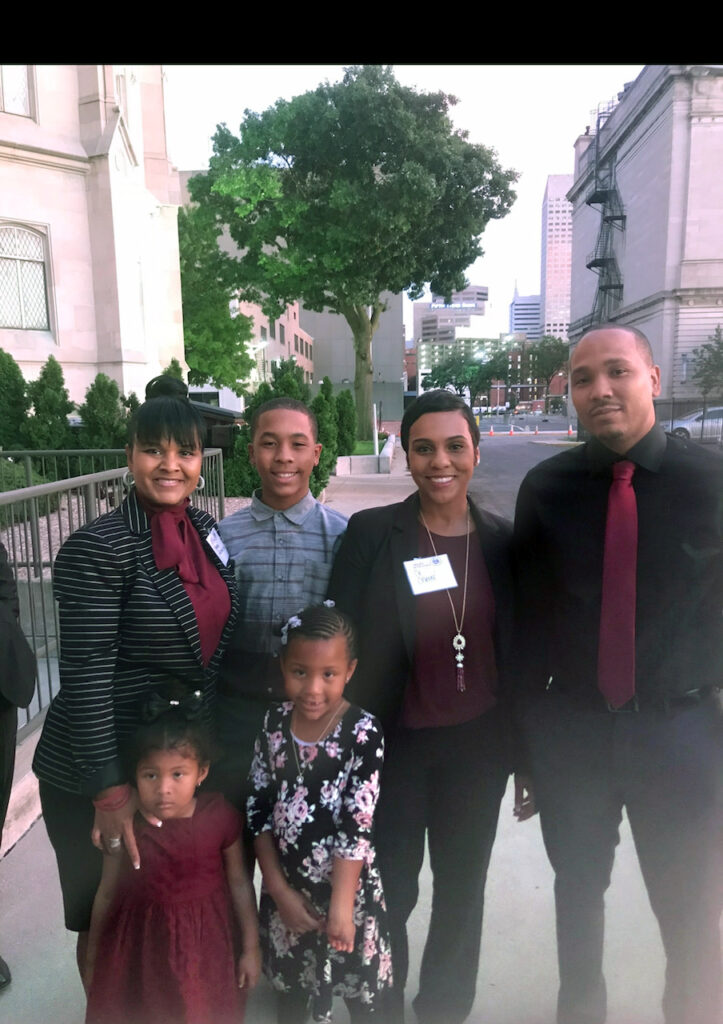
“My mom, she was a loving person,” Mr. Norwood said. “She was a nurse, and part of her being a nurse was just wanting to help other people.”
She left behind five children and five grandchildren.
Dr. French noted that providers should listen to the families of patients. He also acknowledged the degree of systemic racism at play.
“It’s a shame that that’s going on even now. It’s now 2024. But I think that a lot of times, you get a lot of mistreatment or lack of treatment,” he said. “There’s a disparity in treatment across the board. As you look at treatment for diabetes, treatment for heart disease, treatment for kidney disease, multiple illnesses, cancer.”
He argued that the Black perspective needs to be understood and that the issues and barriers preventing someone from getting care needs to be investigated.
“These sort of exposures of lack of care and antagonistic care, these sorts of things should be exposed,” Dr. French said, speaking of his wife and the pain of his family. “They should be brought out because otherwise, people are just going to continue to do what they want to do.”
Mr. Norwood described his mother as an advocate for change in the medical field. From hearing her stories, he concluded that too many in the field care more about the job and the title than the people they are supposed to be treating.
“Are you really being a doctor and trying to help people? Do you just want the accolades and the spotlight, or do you actually want to save people’s lives?” he questioned.
He said it was clear that the doctors and nurses at Ascension St. Vincent did not care about his mother.
Mr. Norwood believes that doctors and nurses should be mentally evaluated, due to the number of traumatic experiences they go through that may lead to or cause a numbness to the suffering of patients.
“It becomes inhumane after a while because it’s just, tug and pull this human being whichever way, and they’re going to go and do what the professional says because they want to continue living their life,” he said. “But at what point are the doctors and the professionals held accountable for their negligence and lack of proper care?”
The problems within the healthcare system are national. Black patients suffer all around. According to a report by Cigna Healthcare, Black people experience significant disparities with chronic conditions, access to care, preventive screenings and mental health.
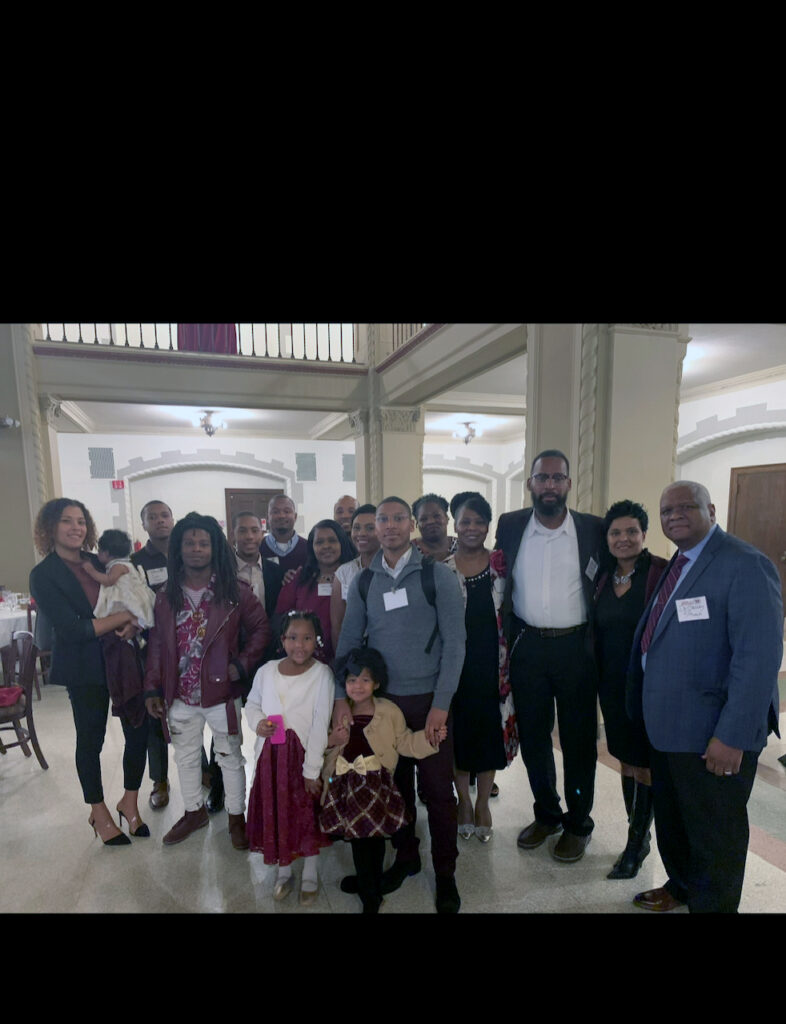
An article by The Marshall Project illustrates that in 2019, over 72,000 more Black Americans died at younger ages, and one in five Black deaths happened earlier than expected for White Americans.
“Research shows Black Americans receive less and lower-quality care for conditions like cancer, heart problems, pneumonia, pain management, prenatal and maternal health, and overall preventive health. During the pandemic, this racial longevity gap seemed to grow again after narrowing in recent years,” the article says.
Other researchers have documented the excess mortality rates that Black people experience and the lack of treatment for Black pain. Like Ms. French, in December 2015, 57-year-old Barbara Dawson, a Black woman, was accused of faking her symptoms. She was discharged from the hospital and died shortly after. One study conducted in 2016 revealed differences in physicians’ verbal and nonverbal communication with Black and White patients at the end of life.
Yet another report titled, “Black and Aging in America,” published in 2021, analyzed that “while older Black adults composed only nine percent of the 65-and-older population, they accounted for 37 percent of Covid-19 hospitalizations in 2020 and 2021. Moreover, the death rate from Covid for older Black adults was more than twice the rate of older Whites.”
The report also found that 39 percent of older Black women must rely on regular outside help to reduce the probability of worsening conditions and that Black caregivers, who are most likely a relative or a close friend of the patient, “also take on more advocacy duties—monitoring conditions, communicating with healthcare professionals, and representing their clients in business matters.”
In the case of Ms. French, her daughter operated as her primary caregiver. Her family feels that their voices went unheard once she was placed in the care of the hospital.
It is because of these familiar, negative experiences inside of hospitals and medical facilities that the Most Honorable Elijah Muhammad and His National Representative, the Honorable Minister Louis Farrakhan of the Nation of Islam, have advocated for Black people to have their own hospitals.
“We should form a Ministry of Health and Human Service,” Minister Farrakhan said in his 10th anniversary address of the historic Million Man March, delivered on October 15, 2005, on the National Mall in Washington, D.C.
During a 2016 interview on The Breakfast Club, Minister Farrakhan shared how $1.1 trillion comes through Black people’s hands in a single year and how that money could be used to build institutions such as hospitals.
“That makes us the ninth richest country in the world. Those that have less than $1.1 trillion, they’re building schools, hospitals, farms, factories; they’re doing something for themselves, as a nation,” he said.
“This is the crime, the ignorance of Black people,” he added. “We have to erase the ignorance and get us started doing something for ourselves.”













